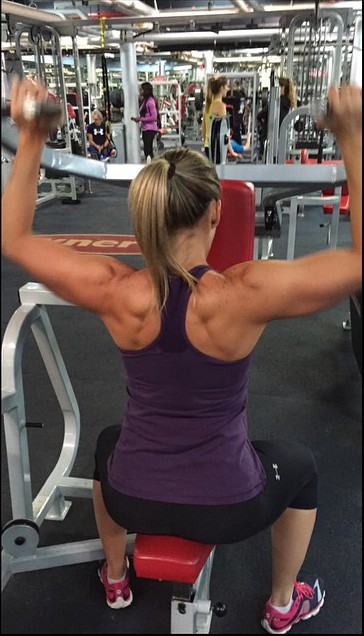Dragon Boat Training: Ways to Improve Your Paddling When You Aren’t on the Water
Posted by Kristin Stickels on
Whether you plan to try out for your country’s national team, or you simply want to feel stronger on the boat, training sessions are essential for your paddling development.
I recently had a paddler tell me, “I feel like I’m not getting any better.” I asked, “Well, how often do you practice?” She sheepishly smiled and said, “Not that often.” I see the problem.
Don’t neglect the training time off the water
There is a reason we have the saying, “Practice makes perfect.” Paddling, like most things in life, doesn’t improve without practice. Training is what takes us to a higher level. You may have first picked up a paddle 2, 5 or even 10 years ago, but unless you are practicing consistently, your paddling will not improve. Time on the water will help you to improve. But don’t neglect the training time off of the water either.
Supplement On-Water Practices with Time in the Gym
Strength and cardio can be improved with land-based training. For strength, you should have a solid weight lifting plan. Your coach can hopefully help you develop a gym plan to help build muscle.
For cardio, there are many great options. I love swimming because it really forces you to focus on your breathing while improving your lung capacity. Running is also a great way to work on your cardio. If you aren’t familiar with the erg (the rowing machine), hop on one. It is a great total body workout! It engages your leg drive, your lats, your abs, basically every muscle that you will use for paddling, just in a different type of movement. Check out the Concept2 website for training programs as well as tips on how to erg properly. Yoga and pilates are awesome for stretching and strengthening as well.

Alice, Team USA Premier paddler, proving there are no limits at the gym.
Photo courtesy of Alice Tran
How often should you be working out off the boat? Depending on how frequently your team trains on the water, you should likely spend at least 3 days per week working on building your strength and another 3 days per week working on cardio.
The stronger you become and the better your cardio gets, the easier it will be for you to put your focus on aspects of technique that need refining. You won’t be huffing and puffing through the basics during your on-water practice and your muscles will be more prepared to handle the load of your training sessions. When your cardio and strength are better, you can push yourself more at each practice.
Fitness and Performance: A Crucial Combination
When training, it is important to distinguish between fitness and performance. Fitness includes your aerobic and anaerobic capacity, your muscular strength, and your power. Performance is how well you can integrate the fitness you have achieved with the technique that you have learned in paddling.
The combination of fitness and performance are crucial to success in dragon boating; you can’t rely solely on one over the other. Imagine a professional soccer player hopping on the dragon boat. He or she has incredible fitness, but has no idea of the technique necessary to propel the boat. Superior fitness will result in impressive stamina, but performance is still essential.
On the other hand, consider a paddler who has excellent technique, but has been off of the boat for some time and has not been doing much in terms of cardio work. He or she would burn out less than halfway through a race and be relatively useless to the team.
Time trials test your performance while fitness tests test your fitness
For this reason, many teams have both a fitness test and a time trial in order to determine which paddlers will be considered for the race boat. Fitness tests will often include things such as push ups, pull ups, squats, bench presses, etc. A time trial will typically be conducted on the water on either an OC1 or OC2 or using an erg with a paddle attachment.
The time trial will test your performance while the fitness test will determine, well, your fitness. It is important to find out what your team requires in terms of testing and prepare yourself for this. Ask your coach how you will be tested and start working far ahead of when the test will be administered. If you’re unfamiliar with any aspects of the testing, work to become familiar with it. If your goal is to make the race boat, it’s your job to master these tests by developing your fitness and performance.
Commitment Can Mean Sacrifice
Being a committed paddler means making some sacrifices. Sometimes that means that we have to forego dessert and choose an apple instead, and other times it might mean that we miss a family dinner because of practice. Often it means dragging yourself out of bed at the crack of dawn to head to the gym when you’d rather be sleeping in. Training hard is all about choices, though. And depending on what level you plan to take your paddling to, you will have to make many choices that involve sacrifices.
Make the commitment to yourself and your team to improve your paddling. Every bit of training helps.
ABOUT THE BLOGGER
Kristin Stickels is a three-time Team USA member of the US National Dragon Boat Racing Team. She is the coach of the Miami team Puff, the Florida Tarpons women's team and the local Breast Cancer Survivors' Team (SOS).
She is also an avid outrigger canoe paddler and raced through the Panama Canal on a native cayuco boat from the Atlantic to the Pacific.
Found out more about Hornet paddles at www.hornetwatersports.com
0 comments





